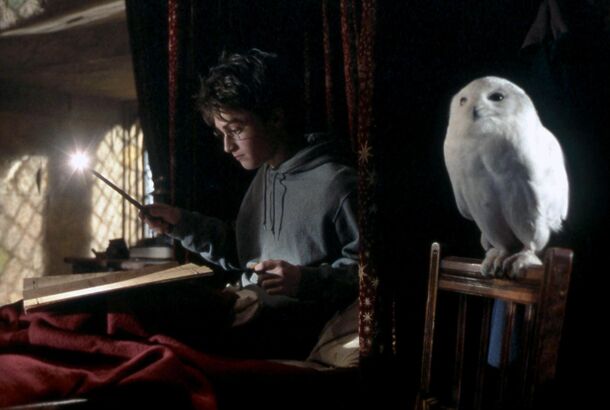There’s a Reason 'Harry Potter' Spells Feel So Familiar — And a Fan Theory Might Explain Why

It’s not just Latin — it’s how magic works.
Ever wondered why Lumos feels instantly understandable? Or why Avada Kedavra gives you chills, even if you’ve never cracked open a Latin dictionary? There’s a reason Harry Potter spells feel like half-remembered phrases — echoes of something ancient and oddly logical. And according to one fan theory, it's not just clever naming. It's magical psychology.
Latin, but make it magical
Many of the most iconic spells in the Wizarding World come straight from Latin — or close enough to feel like they do. Accio means 'I summon', Expelliarmus translates to something like 'I banish weapon', and Lumos comes from lumen, meaning light. Nox, of course, means 'night', making it a fitting off-switch. Obliviate shares roots with obliviscor ('to forget'), while Stupefy is derived from stupeo, meaning — yes — to be stunned. You don’t need a PhD in classics to feel like these words make sense.
And then there’s Avada Kedavra — the series’ most sinister spell. While it sounds like a cursed cousin of abracadabra, it’s been linked to an Aramaic phrase roughly meaning 'I destroy as I speak.' Its phonetic similarity to 'cadaver' is probably no accident either. These aren’t just nonsense syllables — they carry weight, history, and meaning. No wonder they resonate.

The real magic? Focus.
But here’s where it gets really interesting. As Reddit user Neon-Bomb put it, discovering the series for the first time as an adult:
"We use Latin words for science and medicine because of the need to be incredibly precise. Using a dead language guarantees that you won't lapse into colloquialisms. A word will always have the same meaning."
In the Harry Potter universe, that same logic applies. Latin isn't just there for atmosphere — it's a tool. A means of narrowing a young wizard’s mind toward a specific, focused outcome. Like scientific language, magical incantations help eliminate vagueness. And when you're trying to levitate a feather — or disable a Death Eater — vague is the last thing you want.

As the books go on, we learn that incantations aren’t even required. Advanced wizards can cast spells silently, wandlessly, even reflexively. And what drives that? Intent. Concentration. Rage, sometimes — as when Harry unintentionally inflates Aunt Marge without any spell at all. The spell is never just in the word — it’s in the will.
As irishwoody89 wrote, "Spells and wands are a means to help focus the magic, but after time and experience, they can be unnecessary." Another user, heelspider, notes that Latin is used in almost every fictional magic system, not because it’s inherently mystical, but because it's our collective idea of what magic should sound like.
So... does the word matter? Or the mind?
Probably both. But the more you read, the more it seems that spells in the Potter universe are not just mini-programmes spoken aloud — they’re training wheels for magical thought. Once that focus is sharpened, the words are optional.

So next time someone yells Stupefy!, just know — the power wasn’t in the pronunciation. It was in the intent behind it. And maybe, just maybe, that’s why the spells feel like they’ve always been with us. Because in a way, they have.
